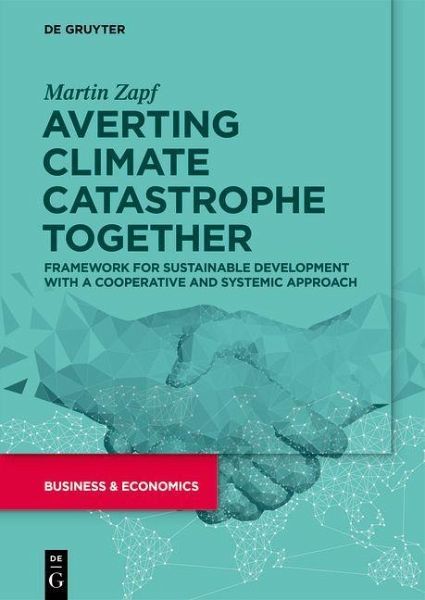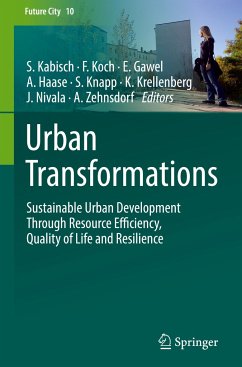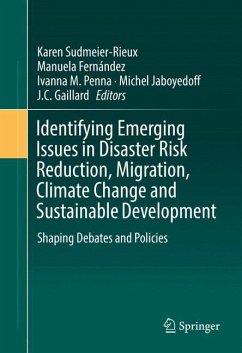
Averting Climate Catastrophe Together
Framework for Sustainable Development with a Cooperative and Systemic Approach

PAYBACK Punkte
0 °P sammeln!
Averting Climate Catastrophe Together addresses the necessity of meeting the Paris Agreement temperature target and explores what framework could enable climate action in an effective, efficient and equitable manner that is consistent with that goal. It also looks at the contribution of technological change within the economic system, including the feasibility of a global energy transition. Whether humanity can avoid catastrophic climate change does not seem to depend on the availability of technological solutions, but rather on international cooperation and coordination.Given the various sust...
Averting Climate Catastrophe Together addresses the necessity of meeting the Paris Agreement temperature target and explores what framework could enable climate action in an effective, efficient and equitable manner that is consistent with that goal. It also looks at the contribution of technological change within the economic system, including the feasibility of a global energy transition. Whether humanity can avoid catastrophic climate change does not seem to depend on the availability of technological solutions, but rather on international cooperation and coordination.
Given the various sustainability issues, this book also considers if it is possible to derive a general approach to them. It argues that dealing with compatibility limits in complex systems requires a holistic change in the system structure. Therefore, systems science is discussed together with economics, technological change, and sustainable development.
This book targetsscientists and experts from different disciplines due to the interdisciplinary topic, but especially from environmental economics and energy technology; policy makers, as policy recommendations are provided to address climate change; as well as the general public due to the pressing common challenge of climate change and comprehensive efforts for sustainable development.
Provides evidence based on climate science research on the necessity of meeting the Paris Agreement temperature target Highlights the feasibility of the global energy transition as one major option to mitigate climate change, also going into detail about the process of technological change Brings together systems science with economics, technological change, and sustainable development Derives a framework to meet the Paris Agreement temperature target, enabling coordinated climate action in an effective and efficient manner while pursuing distributive justice
Given the various sustainability issues, this book also considers if it is possible to derive a general approach to them. It argues that dealing with compatibility limits in complex systems requires a holistic change in the system structure. Therefore, systems science is discussed together with economics, technological change, and sustainable development.
This book targetsscientists and experts from different disciplines due to the interdisciplinary topic, but especially from environmental economics and energy technology; policy makers, as policy recommendations are provided to address climate change; as well as the general public due to the pressing common challenge of climate change and comprehensive efforts for sustainable development.
Provides evidence based on climate science research on the necessity of meeting the Paris Agreement temperature target Highlights the feasibility of the global energy transition as one major option to mitigate climate change, also going into detail about the process of technological change Brings together systems science with economics, technological change, and sustainable development Derives a framework to meet the Paris Agreement temperature target, enabling coordinated climate action in an effective and efficient manner while pursuing distributive justice














